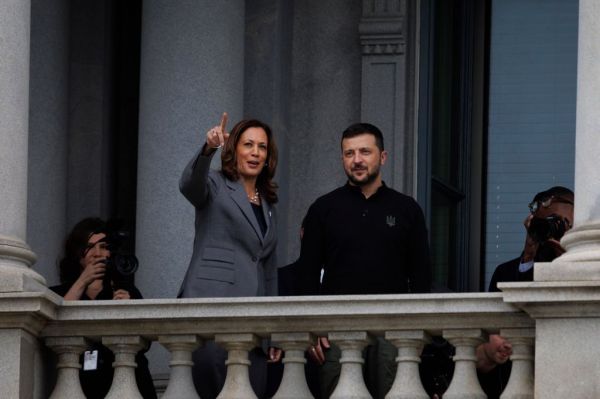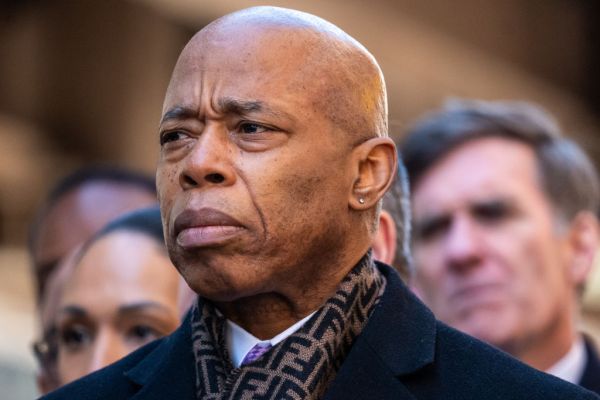Hello and happy Saturday. If you’re living in Florida or any of the southeastern states that bore the brunt of Hurricane Helene, I hope you are safe and dry. The remnants of the storm reached as far as the Ohio bureau, and we are without power at the moment. I wrote some of this by candlelight with the help of the Wi-Fi hotspot on my phone, so in the interest of conserving battery power, I’m going to skip the intro essay.
Before we get to the good stuff, you might remember that last week I couldn’t wait for the spy-movie version of Israel’s incredible series of attacks on Hezbollah involving pagers, walkie-talkies, and then an airstrike that took out most of the leadership of Hezbollah’s elite Radwan Force. I wrote too soon: Reports emerged yesterday, and Hezbollah confirmed this morning, that an Israeli airstrike on Beirut killed Hassan Nasrallah, the group’s founder and leader.
Details are still emerging, and the world will be watching how what’s left of Hezbollah and Iran will respond, as well as what steps Israel might take next. You can be sure that we will have more on this monumental development next week.
Thanks for reading, and I hope you have a good weekend.
The college freshmen settling into dorms and finding their way around campuses across the country represent the first class to enroll since the Supreme Court banned race-based admissions in Students for Fair Admissions v. Harvard. What does this freshman class look like, demographically, and are schools able to achieve the diversity they are seeking through other means? Robert VerBruggen explores these questions, and finds that “‘Race-neutral’ paths to a diverse student body still exist.” He notes that schools in states that had already banned affirmative action have adopted measures such as automatically accepting students in the top 10 percent of their class or giving preference to students from lower socioeconomic classes. He also shares data revealing that black student enrollment was down at many elite universities. And, lastly, he reminds us that the real problem is the achievement gap at the K-12 level, a problem that could be addressed “through improved K-12 education, such as through charter schools” and “elite universities [operating] top-caliber high schools in impoverished neighborhoods around the country.”
Presidents have a long history of being displeased by or even trying to influence the Federal Reserve, an independent government agency. The Fed influences interest rates, and presidents tend to like low interest rates. While President Bill Clinton adopted a policy of not commenting on Fed actions or policies and his successors have largely followed his lead, Donald Trump was an exception. He frequently criticized the central bank, particularly Chairman Jerome Powell (whom he appointed). Jason Furman, a Harvard professor and one of President Barack Obama’s chief economic advisers, warns about the threat Trump would present to the Fed were he to win a second term: He could fire Powell (a decision that would end up in the courts) or wait until the end of his term in 2026 and replace him with a loyalist. Furman also points out that some of Trump’s policy proposals—namely tariffs—would be inflationary and that would prompt the Fed to raise interest rates, a move Trump would almost certainly oppose. He writes that the Federal Reserve’s structure features several safeguards against a wholesale takeover, but he also wonders whether, should Trump try to meddle with the Fed, that would be the first uneasy step down a slippery slope: “What if Trump were reelected and put highly partisan hacks on the Fed? My hope would be that a future Democratic president would go back to the norm of nonpartisan experts, but it could also lead the president to appoint his or her own partisan hacks in order to not be the sucker who followed a broken tradition.”
For quite a few reasons, Jonah doesn’t have much interest in writing about Ta-Nehisi Coates, who became famous a decade ago for his Atlantic essay “The Case for Reparations” and his book Between the World and Me. But after some time out of the spotlight, Coates is back. He has a new book out that slams Israel, and in speeches he’s referred to Israel’s government as a “Jim Crow regime.” Jonah holds up Coates’ work as an example of “resistance addiction.” He writes: “The reason the punk eco-warriors throw paint or soup at great works of art? Because great works of art have cultural authority. Why tear down or deface statues? Because statues—even of abolitionists—evoke cultural confidence and elicit ‘you’re not better than me’ resentment. Israel is a symbol of confidence, and many hate it for it. … The spurious claims that it is a colonial outpost of America or the white West not only trigger outrage but vast amounts of sweet, sweet, self-flagellation-fueling guilt. Israel is a statue to topple, a painting to draw on with crayon.”
And here’s the best of the rest:
- In our latest Monday Essay, Ilya Somin addresses some recent critiques of libertarianism and offers his own suggestions for the movement. He points out some policy-oriented gains that libertarians have won recently, but focuses on where the movement has room to improve: “It needs to bolster its philosophical foundations and approach to public goods. It also needs to recognize that nationalism has become the greatest threat to liberty in most parts of the world.”
- We’re sorry to report that Will Rinehart, who writes our Techne newsletter, lost his mother a week ago. But that didn’t stop him from writing about a topic near and dear to him: medical innovation. In this week’s newsletter, he details the experimental treatment his father underwent to keep cancer at bay for many years, and the innovative therapy his mother used. “In policy, we often talk about extending life years,” he writes. “But to me, even as I was living them, I knew those extra years my mom and dad had were incredibly precious.”
- “The degradation of Hezbollah’s capabilities in the last couple of weeks has no precedent historically.” That’s what Gerald Steinberg, a professor at Israel’s Bar-Ilan University, told Charlotte earlier this week in a piece she wrote about the state of the conflict before the big news about Nasrallah. Her piece has been rendered a little outdated, but it’s still worth a read.
- Given that Kamala Harris’ campaign has been light on policy and heavy on promises about protecting norms, it might seem odd that she came out and said she supported overturning the Senate’s filibuster rule to make it easier to codify Roe v. Wade. In Boiling Frogs, Nick runs through the reasons it would be objectively bad and why it would end up being a nightmare for Harris herself. So why did she do it? “The answer, inescapably, is that she believes there’s more to be gained than lost at the polls by doing so.
- The North Carolina GOP is dealing with the fallout from a CNN report revealing that Lt. Gov. Mark Robindon, the party’s gubernatorial nominee, left lewd and incendiary comments on a pornography platform before he entered politics. Eric Cunningham, the founder of Elections Daily and a lifelong resident of the state, writes about Johnson’s rise in state politics and argues that the party should have stopped him earlier. (Kevin has a more, um, colorful take on Robinson if you’re interested.)
- We made Luis watch the new Matt Walsh movie, Am I Racist?, so that you don’t have to. He describes it as a “a Borat-esque mockumentary for people who get too many Ben Shapiro YouTube ads” but ultimately realizes that “Walsh is neither the first nor the most sophisticated opponent of woke excesses.”
- The pods: On The Dispatch Podcast, Jamie talked to Reuel Marc Gerecht, a former Iranian-targets officer in the CIA, about how Iran might respond to Israel’s attacks on Hezbollah (caveat that this predates the Nasrallah assassination). The state of Missouri executed Marcellus Williams on Tuesday, despite objections from prosecutors and the family of the victim. David and Sarah review the evidence and discuss the case on Advisory Opinions. Get comfortable before you tune into Jonah’s Remnant interview with Sam Harris, the neuroscientist-philosopher and father of the new atheism movement. They had so much to talk about—secularism, antisemitism, artificial intelligence, the emancipation of C-3PO—that it’s twice as long as your normal Jonah pod.










Please note that we at The Dispatch hold ourselves, our work, and our commenters to a higher standard than other places on the internet. We welcome comments that foster genuine debate or discussion—including comments critical of us or our work—but responses that include ad hominem attacks on fellow Dispatch members or are intended to stoke fear and anger may be moderated.
With your membership, you only have the ability to comment on The Morning Dispatch articles. Consider upgrading to join the conversation everywhere.